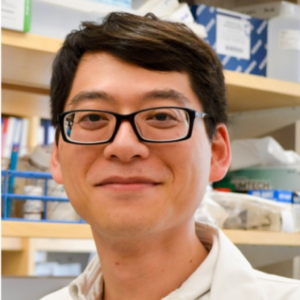Funding Summary
Dr. Derek Tai developed PWS cell lines representing type 1 and 2 deletions and has grown them as 3-D brain organoids, recapitulating the hypothalamus, in a dish. He has applied cutting edge technology to understand how PWS neurons differ from typical neurons and has generated data on gene expression changes. In year 2, he will expand the study to include assessment of energy/metabolism and electrophysiology to understand the underlying mechanism of disease in PWS.
Dr. Theresa Strong, Director of Research Programs, shares details on this project in this short video clip.
Lay Abstract
Prader-Willi syndrome (PWS) is caused by a deletion of a small region on chromosome 15 (15q11-q13) that was inherited from the father. The unique genetic nature of PWS has been known for many years, but the precise way it causes the developmental abnormalities is not understood, in part because the deleted region contains many different genes. To investigate this, we capitalized on new techniques for growing human stem cells and manipulating their chromosomes. Using CRISPR genome editing technique, we generated stem cells with PWS deletions including canonical deletions of the full region. Moving forward, we will differentiate all these PWS stem cells into three-dimensional (3D) organoid model from the hypothalamus, a brain region thought to be critically important for obesity and behavioral abnormalities in PWS patients. We will then study the level of expression of all genes and the cellular properties of these PWS organoids by comparing them to organoids without the deletions. This will help us determine whether given signaling pathways and aberrant cell geometry are responsible for causing PWS abnormalities. The cell models generated will establish a powerful resource for the research community. Ultimately, the results will provide a new, genetically precise, human cellular model system for investigators in the field, insights into how PWS deletions translate into abnormal development, and a key foundation for figuring out which genes are responsible for PWS. Hopefully, the generation of this resource and the insights it will provide will lead to new therapeutic targets for PWS, which can then be validated using our cellular system to determine whether they ameliorate PWS-associated molecular and cellular abnormalities.
This project has been made possible with funding from FPWR-Canada.
Research Outcomes: Public Summary
The primary clinical features of Prader-Willi syndrome (PWS) include hypotonia, hyperphagia, obesity, hypogonadism, and behavioral abnormalities. PWS symptoms have been linked to hypothalamic dysfunction, but the underlying mechanisms remain unclear. Prior studies have implicated hypothalamic neurons (HNs) in PWS pathogenesis, yet developing robust iPSC-derived HN protocols has been challenging. To develop a cell type relevant to many hallmark features of PWS and elucidate the disease mechanisms, we have now established HN organoids from isogenic human induced pluripotent stem cells (hiPSCs) using recently published protocols. We performed bulk-RNAseq on 2-month-old HN organoids carrying PWS deletion. Transcriptional profiling revealed expression dysregulation for pathways associated with nervous system development, neuronal differentiation, synaptic transmission, and neuropeptide signaling (specifically, G protein-coupled cAMP signaling). Notably, there was significant directionality in the genes with altered regulation in HNs. Up-regulated differentially expressed genes (DEGs) were enriched for pathways related to bioenergetics and protein processing, while down-regulated DEGs showed enrichment for cell signaling pathways, hormone secretion, and neuronal communication terms including oxytocin signaling and GABAergic synapse. The enrichments for neuronal differentiation and nervous system development prompted us to explore cell type compositions in our HN organoid models using single-cell RNA sequencing (scRNAseq). We identified medial mammillary nucleus (MMN) HNs, arcuate nucleus (ARC) HNs, premammillary nucleus (PMN) HNs, and prethalamus HNs as major cell classes in these WT HN organoids. The results were highly consistent between replicates and suggest that our HN organoid models contain the major HN cell types, including those hypothesized as most relevant to PWS. Moreover, canonical marker gene analysis revealed dysregulated inhibitory neuronal markers expression in HN models harboring Type I/II PWS deletions, indicating potential altered neuronal composition in PWS. Recently, hypothalamic GABAergic neurons were implicated in promoting food intake. These results suggest our HN models recapitulate some PWS-relevant signatures and allow us to further dissect the PWS lesions and interrogate disease mechanisms. Finally, in our most recent analyses, we have successfully assessed electrophysiology in the PWS HN organoids using microelectroarray (MEA) and observed altered electrophysiological activity in the PWS HN organoids. These findings indicate impaired electrophysiological activity and altered cellular composition are the potential functional features associated with PWS deletions. Our work has laid the groundwork for understanding the disease mechanism.
Funded Year:
2021
Awarded to:
Derek Tai, Ph.D.
Amount:
$108,000
Institution:
Massachusetts General Hospital
Researcher:

Derek Tai, PhD




